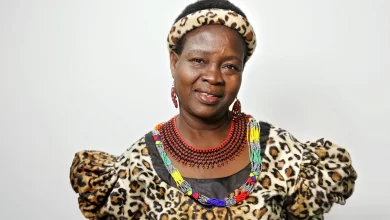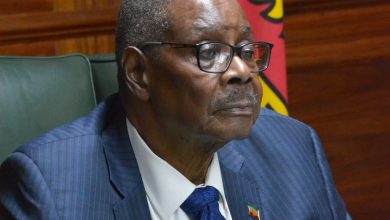How prisons raised a fearless rights activist
Imagine growing up in confinement with suppressed murmurs of forgotten men and women—an unsanitary place where freedom of movement and free speech is limited.
Imagine growing up in a place where your diet is predetermined by law, but rarely available.

This is a place where rights activist Victor Mhango spent the first 21 years of his life when his father, Chagunyuka, was a prison officer.
For him, prison was his home and prisoners his neighbours.
“I talked to them at every opportunity that arose, especially when they were assigned to work at home,” Mhango says.
Such encounters gave him a glimpse of inside stories of the inmates canned in overcrowded cells with a bucket for a toilet.

In 2000, Mhango co-founded the Centre for Human Rights Education, Advice and Assistance (Chreaa) in accomplishment of his childhood mission to become a voice of his friends caged behind bars.
“Chreaa was born out of a deep frustration with the injustices faced by vulnerable and marginalised groups, especially those caught in conflict with the law,” he says. “I saw how poverty could land you in jail for the pettiest of offences. Once in, you were forgotten. Something had to change”.Chreaa supports pre-trial detainees languishing without legal help, prisoners held long after serving their sentences, street-connected children in conflict with the law and rural communities unaware of their constitutional rights.
“We found people jailed for years without trial, women imprisoned for selling liquor without a licence and the youth arrested for simply loitering” says Mhango.
The non-governmental organisation supported Mayeso Gwanda, the fish vendor who moved the Constitutional Court to annul a colonial rogue and vagabond law which allowed indiscriminate sweeping arrests.
Mhango and team argued against the law often abused to punish the poor found walking at night while motorists sped past scot-free.
“Sometimes it felt like shouting into the void. But every person we helped reminded me why this work matters” Mhango says.
Chreaa has provided legal aid to hundreds who were unjustly imprisoned, with cells designed for 30 people now sitting over 100.
The organisation also provides civic education in various communities.
Over the years, its cry for justice has grown from a whisper into a voice that can no longer be ignored in both rural and urban communities, marketplaces, policymaking tables and Parliament.
It has contributed to policy change and inspired a generation of human rights defenders, including Malawi Human Rights Commission (MHRC) chairperson Chikondi Chijozi.
The MHRC chief describes her long-time boss and mentor as an activist extraordinaire.
“His door is never closed for any underprivileged person. He sacrifices everything he can for others. His passion for prisoners comes from a genuine heart of care” she said.
The renowned human rights lawyer has worked with Mhango for over 20 years and “his energy and passion for prisoners never dies”.
“I don’t know any other true human rights defender than Victor. I get inspired by him every day and I have learnt a lot from him that there is nothing more satisfying in life than serving those that society has condemned” said Chijozi.
Mhango’s “fulfilling activism”—including the lobby for the revised Correctional Services Act, which has replaced the Prisons Act of 1956—has challenges too.
“While activism is associated with protests and court cases, it is more about generating evidence, building alliances, listening to those most affected and staying grounded in compassion and humility,” he says.





